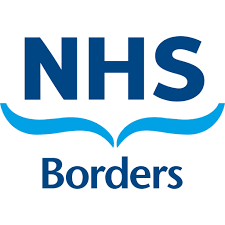Guidance for completing the national child protection paediatric examination proforma

The National Child Protection Paediatric Examination Proforma developed by the 3 regional MCNs was first issued to all Health Boards in 2016. It has recently been updated and revised and now includes data items required by Healthcare Improvement Scotland (HIS) for child sexual abuse examinations as well as a more generic dataset agreed with Public Health Scotland (PHS). This data will enable monitoring of child protection examinations and inform service development.
A. Please fill in all sections with a tick.
B. Explanatory notes for all types of examinations.
Section 1
Known Vulnerabilities / Current Experience: This has been included to get an overall picture of the child and family circumstances and should be taken into account when assessing the safety/action plan for the child and family.
Autistic spectrum disorder/ ADHD – should only be included if they have a formal diagnosis.
Mental health –includes depression/ self harm / PTSD/ eating disorder.
Drugs/alcohol- this specifically relates to the child/ young person using or having issues with drugs
or alcohol.
Section 2
Out of Hours: Was the examination performed after 5pm during the week or at the weekend?
Types of Examination: There are different arrangements for examinations across Scotland.
For those working in the West of Scotland, particularly in GGC, most examinations for physical abuse and neglect will be single doctor examinations. These should be recorded as “Specialist Medical – single doctor” some of these cases may have input from Paediatric subspecialties eg neurosurgery, burns team etc. The category “Joint Paediatric Forensic” – physical/neglect should be used when a CFP and paediatrician have examined a child together.
Section 3
Type of abuse: Please remember to go back to section 3 after assessment to categorise the type of abuse after examination.
Section 5
Consent: Consent needs to be discussed with both the child/ young person if suitable and the parent/carer. If there are concerns around compromised consent please refer to:
Consent for JPFE of children and young people, 3MCN guideline
Section 14
Emotional Wellbeing Risk Assessment: This is especially significant for CSA examination but can be used for any examination. This prompts consideration of the immediate safety of the child and social support for the child and family.
Section 21
Safety Planning: Is the child going back to a safe environment?or are their concerns around other children in the household. If there are concerns what safety measures have been discussed and put in place i.e another family member living with them, removed from the home etc.
C. Explanatory notes for CSA Examinations
Section 4
Delay to examination: HIS quality indicators state that acute CSA cases should be seen for examination within 12 hours of referral. Historic cases (CSA more than 7 days) should be seen for examination within 2 weeks.
For example, reasons for delay could be due to:
- Unavailability of Forensic physician (FP)
- Unavailability of Paediatrician
- Gender preference of FP unavailable
- Patient request to delay
- Police delay
- Social worker delay
- Unavailability of equipment
- Unavailability of appropriate adult
- In the best interests of the child
- Adverse weather
Sex of Examiner: Was the child or young person able to express their preference of sex of examiner?
This question should be asked of children/YP by SW or Police colleagues prior to the examination and discussed with the examining doctors in the planning of the examination.
It is understood that the preference of the child/YP may not be possible due to the available workforce. Please document preference of child/YP and whether this was fulfilled or not.
Sexual Orientation: This is for CSA cases, but can be filled in for any other CP examination if appropriate. It is optional for children under 13, but may be filled in if considered relevant.

